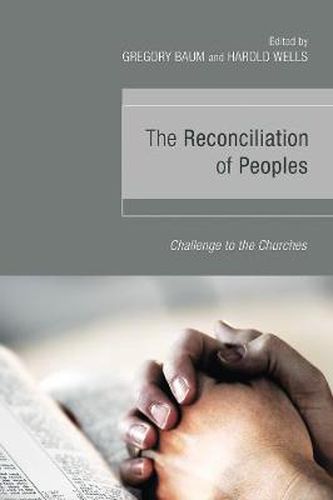Readings Newsletter
Become a Readings Member to make your shopping experience even easier.
Sign in or sign up for free!
You’re not far away from qualifying for FREE standard shipping within Australia
You’ve qualified for FREE standard shipping within Australia
The cart is loading…






This title is printed to order. This book may have been self-published. If so, we cannot guarantee the quality of the content. In the main most books will have gone through the editing process however some may not. We therefore suggest that you be aware of this before ordering this book. If in doubt check either the author or publisher’s details as we are unable to accept any returns unless they are faulty. Please contact us if you have any questions.
Modern ethnic tension and conflict, fueled by poverty and despair, have led to a worldwide escalation of hostility among peoples. From Bosnia to Rwanda to Sri Lanka there seems to be no end to the list of countries in conflict–and the deep divisions along religious lines that become fuel for the fires. Ethnic conflict challenges peacemakers and, in particular, peacemakers in the churches. The Reconciliation of Peoples: Challenge to the Churches, this collection of fifteen original essays, reports on the efforts of church-based groups to foster reconciliation between former combatants in many different contexts. The opening essay by coeditor Harold Wells explores biblical perspectives on forgiveness, reconciliation, and grace. The essays on particular conflicts reflect upon actual efforts and achievements by Christian churches, organization, and individuals to bring about reconciliation among former enemies. These conflicts include peoples divided (the Irish, the Koreans, the Rwandans/Burundians), peoples persecuted internally by their own ruling elite (the Chileans, the Fijians), peoples tragically deprived of land and home (the Palestinians), and peoples torn apart by war (the Germans, the Poles, the peoples of the Balkans). Reconciliation in these contexts is the only way for
two parties to rewrite their histories and enter upon a new path.
The concluding essay by coeditor Gregory Baum reflects theologically on the meaning and demands of reconciliation, and on why it is at times so difficult for churches to take on the role of mediator.
$9.00 standard shipping within Australia
FREE standard shipping within Australia for orders over $100.00
Express & International shipping calculated at checkout
This title is printed to order. This book may have been self-published. If so, we cannot guarantee the quality of the content. In the main most books will have gone through the editing process however some may not. We therefore suggest that you be aware of this before ordering this book. If in doubt check either the author or publisher’s details as we are unable to accept any returns unless they are faulty. Please contact us if you have any questions.
Modern ethnic tension and conflict, fueled by poverty and despair, have led to a worldwide escalation of hostility among peoples. From Bosnia to Rwanda to Sri Lanka there seems to be no end to the list of countries in conflict–and the deep divisions along religious lines that become fuel for the fires. Ethnic conflict challenges peacemakers and, in particular, peacemakers in the churches. The Reconciliation of Peoples: Challenge to the Churches, this collection of fifteen original essays, reports on the efforts of church-based groups to foster reconciliation between former combatants in many different contexts. The opening essay by coeditor Harold Wells explores biblical perspectives on forgiveness, reconciliation, and grace. The essays on particular conflicts reflect upon actual efforts and achievements by Christian churches, organization, and individuals to bring about reconciliation among former enemies. These conflicts include peoples divided (the Irish, the Koreans, the Rwandans/Burundians), peoples persecuted internally by their own ruling elite (the Chileans, the Fijians), peoples tragically deprived of land and home (the Palestinians), and peoples torn apart by war (the Germans, the Poles, the peoples of the Balkans). Reconciliation in these contexts is the only way for
two parties to rewrite their histories and enter upon a new path.
The concluding essay by coeditor Gregory Baum reflects theologically on the meaning and demands of reconciliation, and on why it is at times so difficult for churches to take on the role of mediator.